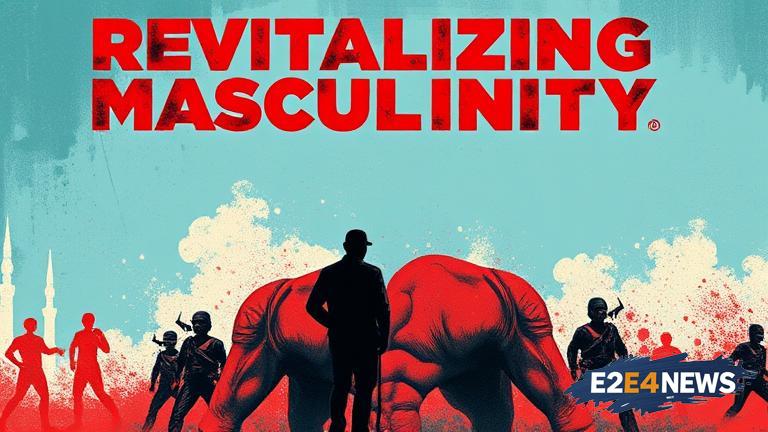The topic of feminism’s war on boys has been a contentious issue in recent years, with many arguing that the erosion of traditional masculinity has severe consequences for young men. The feminist movement, which originally aimed to promote equality between the sexes, has in some cases been hijacked by radical ideologies that seek to demonize masculinity. This has led to a culture where boys are taught to be ashamed of their masculinity, and where traditional male values such as strength, courage, and competitiveness are discouraged. As a result, many boys are growing up without a clear sense of identity or purpose, leading to increased rates of depression, anxiety, and suicide. Furthermore, the lack of positive male role models in many boys’ lives has exacerbated the problem, leaving them without guidance or support. The consequences of this trend are far-reaching, with many young men struggling to find their place in the world. Some have argued that the solution lies in promoting a more nuanced understanding of masculinity, one that recognizes the value of traditional male traits while also acknowledging the importance of emotional intelligence and empathy. Others have suggested that the key to reversing feminism’s war on boys lies in providing boys with positive male role models and mentors, who can teach them the value of hard work, discipline, and responsibility. Additionally, some have proposed that schools and educational institutions should place a greater emphasis on teaching boys about the importance of masculinity and the role it plays in shaping their identities. However, others have argued that this approach is too simplistic, and that the problem requires a more comprehensive solution. They suggest that the root causes of the issue, such as the breakdown of the family and the decline of traditional values, must be addressed in order to effectively reverse the trend. Moreover, some have pointed out that the feminist movement’s war on boys is not just about masculinity, but also about the erosion of traditional values and the promotion of a radical ideology that seeks to undermine Western civilization. In response, some have called for a renewed emphasis on teaching boys about the importance of Western values such as freedom, democracy, and individual responsibility. Others have suggested that the key to reversing feminism’s war on boys lies in promoting a more balanced approach to education, one that recognizes the value of both traditional male and female traits. Ultimately, the solution to this problem will require a multifaceted approach that takes into account the complex interplay of factors that have contributed to the erosion of traditional masculinity. It will require a willingness to challenge radical ideologies and to promote a more nuanced understanding of masculinity, one that recognizes the value of traditional male traits while also acknowledging the importance of emotional intelligence and empathy. Moreover, it will require a commitment to providing boys with positive male role models and mentors, and to teaching them about the importance of masculinity and the role it plays in shaping their identities. By taking a comprehensive and balanced approach to this issue, it is possible to reverse the trend of feminism’s war on boys and to promote a healthier and more positive understanding of masculinity. The importance of this issue cannot be overstated, as the consequences of inaction will be severe and far-reaching. It is time to take a stand against feminism’s war on boys and to promote a more nuanced understanding of masculinity. The future of our young men depends on it. In conclusion, the war on boys is a complex and multifaceted issue that requires a comprehensive solution. It is time to recognize the value of traditional masculinity and to promote a more balanced approach to education. By doing so, we can help to reverse the trend of feminism’s war on boys and to promote a healthier and more positive understanding of masculinity. The consequences of inaction will be severe, and it is time to take a stand. The future of our young men is at stake, and it is our responsibility to ensure that they are equipped with the skills and values necessary to succeed in life. We must work together to promote a more nuanced understanding of masculinity and to provide boys with the positive male role models and mentors they need to thrive. Only by taking a comprehensive and balanced approach to this issue can we hope to reverse the trend of feminism’s war on boys and to promote a brighter future for our young men.
